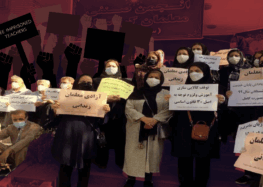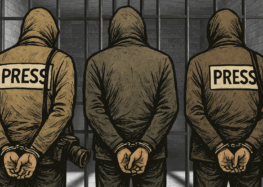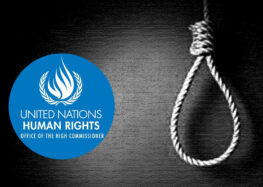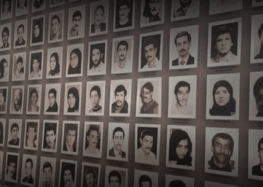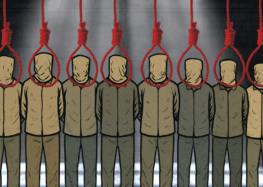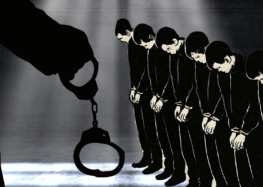Lives at Risk: An Urgent Call from Inside Evin Prison
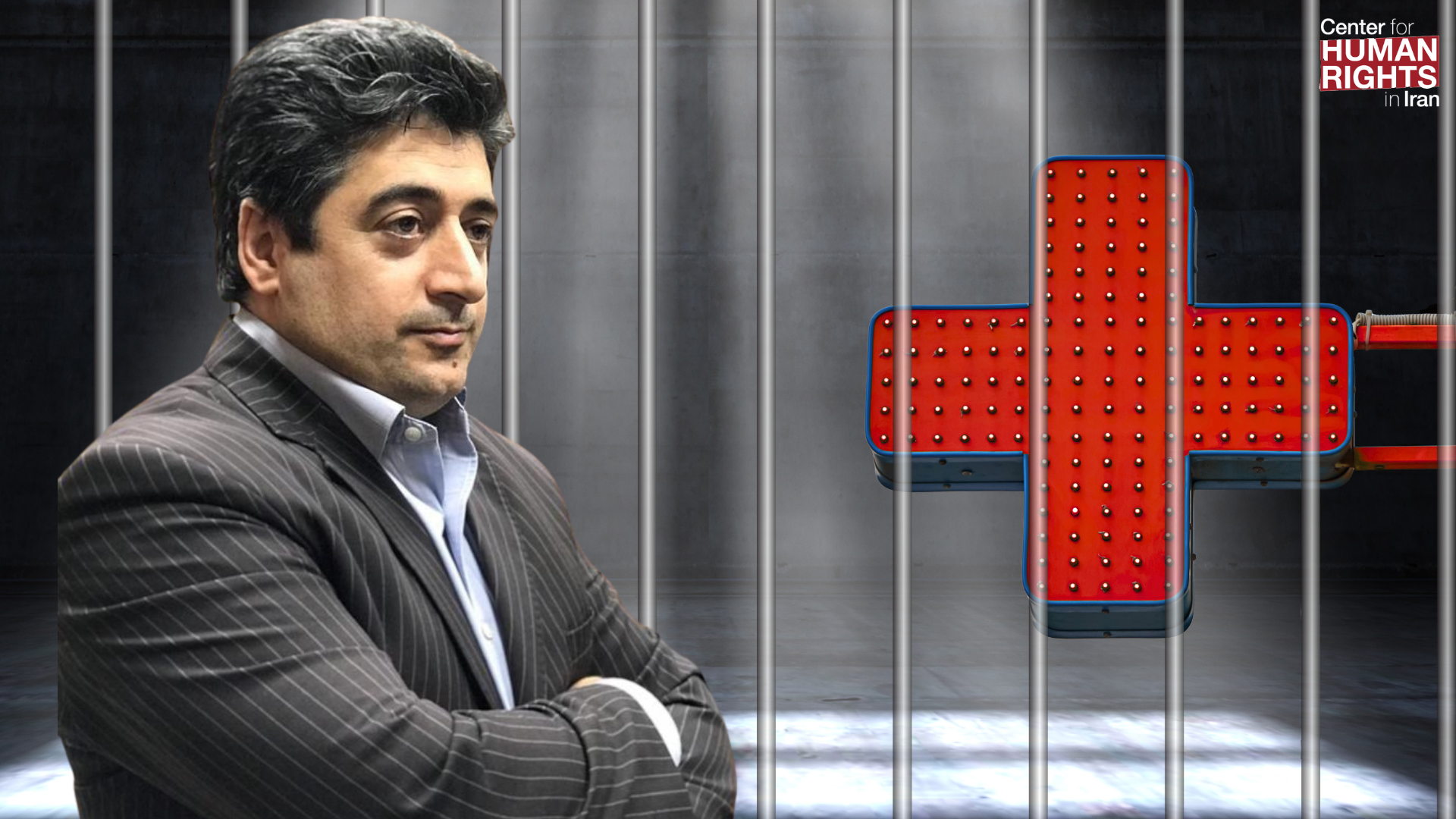
A letter from imprisoned Iranian lawyers urging immediate medical care for their colleague, Taher Naqavi, and an urgent appeal to the international legal community to intervene.
September 22, 2025 — The following letter, written from within the walls of Iran’s Evin Prison by two imprisoned human rights lawyers, Mohammad Najafi and Seyed Mohammadreza Faghihi, is both an urgent plea for action and an act of profound moral courage. At great personal risk, they have chosen to speak out on behalf of their imprisoned colleague, Taher Naqavi, a fellow lawyer who has been imprisoned since February 2024 and is gravely ill. Like so many political prisoners in Iran, he is being systematically denied the critical medical care his condition demands.
Naqavi, suffering from multiple spinal fractures and severe prostate disease, remains incarcerated in conditions that blatantly and intentionally ignore his medical needs, in violation of Iran’s own laws and its international legal obligations.
Primary source documents such as this letter, penned under surveillance and threat of further punishment, are vital sources of information and carry great weight; they are the voices of those who fight for justice, even while they are unjustly imprisoned. Najafi, imprisoned since 2018, and Faghihi, serving a five-year sentence, were both imprisoned for their defense of human rights and could face additional charges, torture, or any manner of retribution by the authorities for writing it.
Their letter reflects the enduring commitment of Iran’s imprisoned lawyers to their professional and ethical duties. It is also a testament to the collapse of legal safeguards in the Islamic Republic’s judicial system and the dangerous normalization of medical neglect as a form of silent punishment. It calls attention not only to the urgent case of Naqavi, but also to the broader pattern of systemic abuse faced by political prisoners in Iran and the harsh treatment for any lawyer in the Islamic Republic who tries to defend legal and human rights.
Najafi and Faghihi make a direct appeal to the global legal community to intervene on Naqavi’s behalf. Bar associations and legal institutions charged with upholding the rule of law, protecting the independence of the legal profession, and defending fundamental rights are in a unique position to act. The systematic denial of medical care to imprisoned lawyers in Iran constitutes a humanitarian crisis and a direct attack on the legal profession itself.
The Center for Human Rights in Iran (CHRI) urges bar associations, law societies, and international legal bodies to:
- Demand immediate hospital treatment for Taher Naqavi and all other imprisoned lawyers and political prisoners in Iran in need of medical care, in line with Iran’s domestic and international legal obligations, including the Mandela Rules.
- Mobilize legal networks to advocate for the release of imprisoned lawyers in Iran and to ensure that their cases remain visible on the international stage.
- Engage in direct diplomacy with Iranian legal institutions and Bar Associations to demand immediate medical intervention and respect for due process.
- Establish emergency mechanisms to monitor the health and safety of imprisoned lawyers and provide international legal support where possible.
The full letter follows:
With greetings and respect,
We wish to inform you that our esteemed and honorable colleague, Mr. Taher Naqavi, attorney at law and a member of the Tehran Bar Association, has been imprisoned in Evin Prison since 6 February 62024, following charges brought against him and a subsequent conviction.
Due to fractures and injuries to vertebrae 7, 9, 10, and 11 of his spine, as well as acute prostate disease, he has long endured severe pain and suffering with great patience. His medical file provides clear and sufficient evidence of these illnesses, and he is a strong candidate for urgent surgery and treatment.
Despite numerous letters and appeals to the relevant judicial authorities and prison officials, no effective action has been taken so far. His medical conditions have worsened and become unbearable.
This is in clear contradiction to Article 522 of the Code of Criminal Procedure, which explicitly states: If the treatment of a person sentenced to imprisonment requires medical care outside prison, the judge responsible for enforcing the sentence shall, based on the opinion of the coroner, determine the necessary duration for treatment, and by obtaining appropriate guarantees, postpone the imprisonment. If no guarantees are provided, treatment must take place in a hospital under the supervision of security officers, and the treatment period shall be counted toward the sentence.
Given that treatment in Evin Prison is impossible due to the absence of hospital facilities, operating rooms, and specialized medical staff, it is both astonishing and deeply regrettable that neglect and delays have persisted in addressing our colleague’s urgent medical needs.
The serious question is: Why has the prison infirmary, despite being aware of Mr. Naqavi’s critical condition and the necessity of his immediate transfer to medical centers, failed to report the matter to the prison warden and the judge responsible for enforcing sentences? And why has the judge in charge taken no steps to refer the matter to the Legal Medicine Organization?
Truly, what must happen before judicial authorities and prison officials recognize the undeniable necessity of providing urgent medical care to a prisoner suffering from serious illnesses in medical centers outside prison?
According to the Constitution, safeguarding the lives of citizens is a fundamental duty of the state. Protecting the lives of prisoners requires immediate and appropriate medical measures. Responsibility for this lies with the Judiciary and the Prisons Organization, and any negligence or delay in this regard lacks legal, moral, or customary justification.
In addition to domestic laws, international instruments and regulations—including the Universal Declaration of Human Rights, the International Covenant on Civil and Political Rights, and the UN Standard Minimum Rules for the Treatment of Prisoners—emphasize the necessity of protecting the lives and health of prisoners.
In light of these realities, it is unworthy for the Bar Associations and the Judiciary’s Center for Lawyers, Legal Advisors, and Experts to remain indifferent to the plight of our colleague. We respectfully urge you to seriously pursue his treatment, demand explanations from the Judiciary and the Prisons Organization, and ensure the necessary medical care until a satisfactory outcome is achieved.
With thanks,
Mohammad Najafi – Seyed Mohammadreza Faghihi
Evin Prison – September 15, 2025

